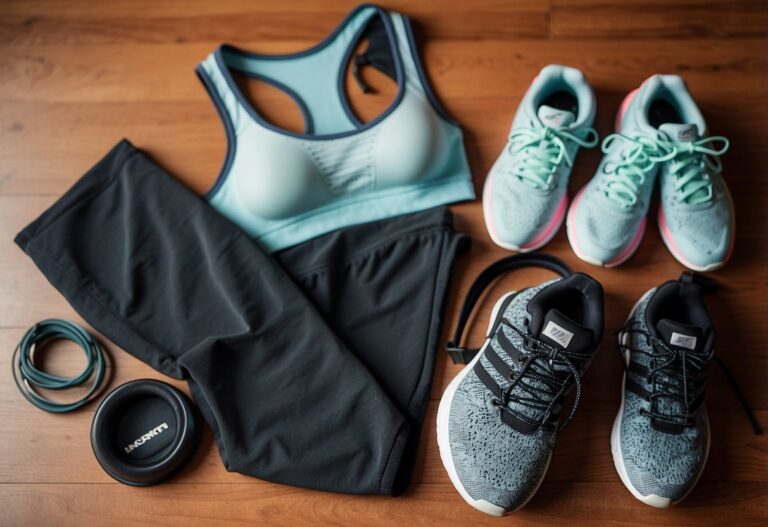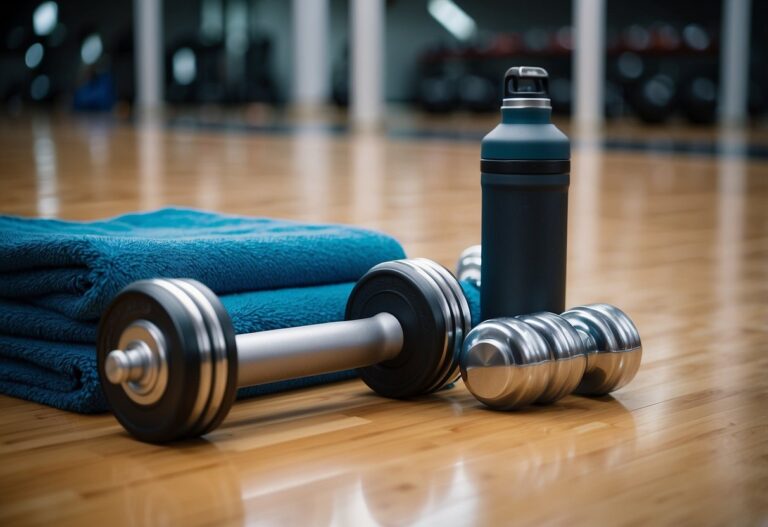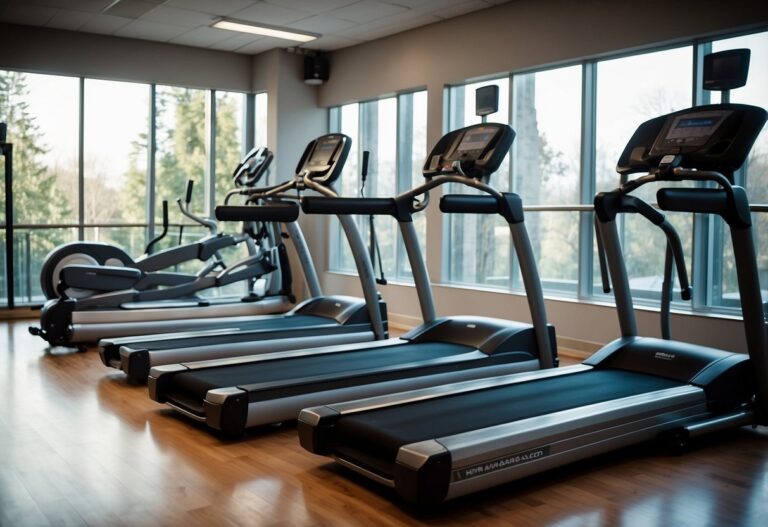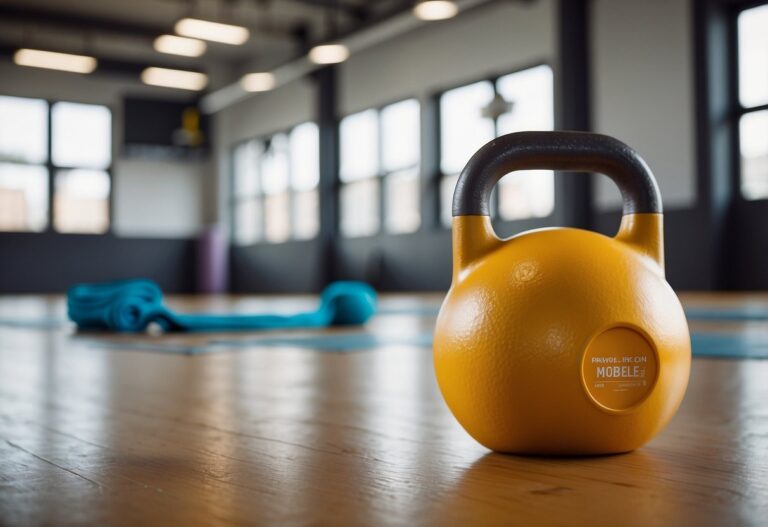Finding the motivation to wake up early for a workout can often feel like a daunting task, but developing the right habits can make this goal much more achievable. Embracing the morning hours for exercise can bring a range of benefits, from improved energy levels to a sense of accomplishment that lasts throughout the day. How can you transform into an early riser and make morning workouts a consistent part of your routine?
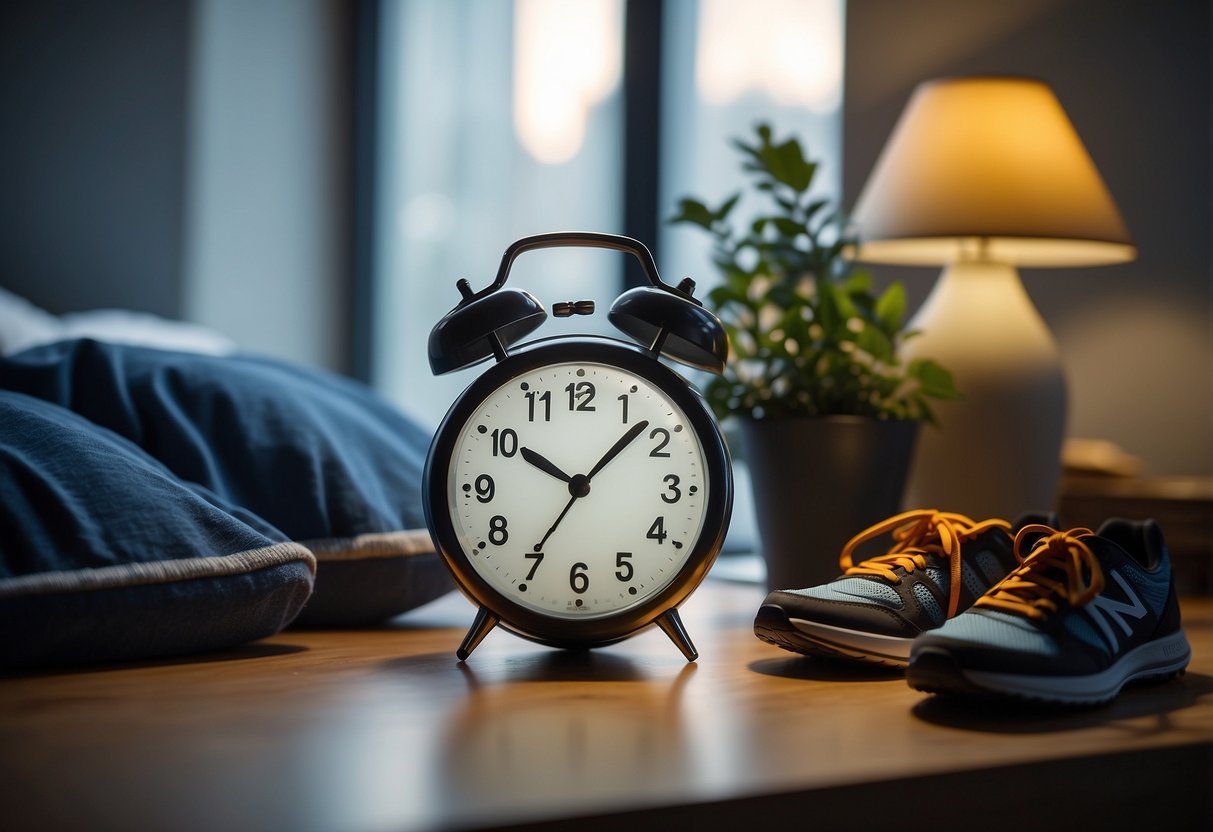
Many people struggle with the idea of leaving their cosy bed before the sun rises, but with a few adjustments to your nightly routine, it doesn’t have to be so difficult. Establishing a consistent wake-up time and creating an environment conducive to early mornings can play a significant role in helping you establish this new habit. As you begin to see improvements in your mood and physical health, you might find that waking up early becomes something to look forward to.
Set a Consistent Alarm
Setting a consistent alarm is crucial. It helps you build a habit. When your body knows it’s wake-up time, it gets easier to rise early.
Place your alarm across the room. This makes you get up to turn it off. It’s a small trick, but effective.
Consistency is key. Even on weekends, try to wake up at the same time. This helps regulate your internal clock. Consistency leads to better sleep and easier mornings.
Prepare Your Workout Gear the Night Before

Getting your workout gear ready the night before can make mornings much easier. It saves time and helps you avoid any last-minute stress about what to wear or what to bring.
Lay out your clothes in a neat pile. This way, you won’t have to fumble around in the dark.
Fill your water bottle before bed. Staying hydrated is important, and having your bottle ready means one less thing to do in the morning.
You could also pack your gym bag with anything you need. This means you can grab it and go, no need to think about it.
Sleep Early for Better Rest

Going to bed early is essential if you want a more energetic start to your day. When you tuck in early, you’re able to get the recommended 7-9 hours of sleep.
A key tip is to set a regular bedtime. This helps your body adjust to a rhythm, making it easier to wake up early.
Create a calming bedtime routine. You could read a book, listen to soothing music, or practise light stretching. Avoid screens as the blue light can disrupt your sleep cycle.
Make your bedroom a sleep-friendly environment. Keep it cool, dark, and quiet. Consider using blackout curtains and earplugs if needed.
Switching to an earlier meal time can also help your body to wind down for an early night. Eating too late often keeps you awake longer. This small change can make a big difference.
Lastly, avoid caffeine and heavy meals right before bed. These can keep you awake and affect the quality of your sleep. A nice herbal tea might be a good alternative.
Plan Your Workout Ahead
One effective way to wake up early to work out is to plan your workout the night before. Knowing what you will do in the morning can make it easier to get out of bed. You won’t spend precious time deciding which exercise to start with.
Lay out your workout clothes before you sleep. This small step can save you time and help you get into the workout mindset more quickly. Also, consider preparing your water bottle and any gear you’ll need.
Set clear goals for your workout. Whether it’s running 5K or lifting weights for 20 minutes, having a target in mind can motivate you to get up and follow through.
Avoid Heavy Meals Before Bed

Eating a big meal before bed can make it harder for you to fall asleep. This happens because your body is focused on digesting food instead of winding down for the night.
Instead, try to eat your dinner at least two to three hours before you plan to go to sleep. If you feel hungry closer to bedtime, go for a light snack. Items like toast or a piece of fruit are good choices.
Avoiding heavy foods can help your body get the rest it needs. This makes it easier to wake up early and energised for your morning workout.
Have a Light, Healthy Snack Ready

Having a light, healthy snack ready can make a big difference in your morning workout routine. Imagine waking up early and not feeling sluggish because you had the right fuel ready to go.
Consider having a small bowl of oatmeal. Oatmeal gives you long-lasting energy without making you feel too full.
Yogurt is another great option. It’s easy to digest and you can sweeten it with a bit of honey or fresh fruit. This gives you a good mix of carbs and protein.
Think about how having these snacks ready can help you feel more prepared and energised for your workout. Keep it simple and consistent, and you’ll likely stick with your early morning exercise routine.
Create a Motivating Playlist
Starting your day with a great workout playlist can make all the difference. Choose songs that have a strong beat and lyrics that inspire you. Create a mix of upbeat tracks and some that build up gradually.
Consider songs like “Renegades” by X Ambassadors for a high-energy boost. Pair that with “Take It Easy” by Surfaces to keep things fun and light-hearted. Adjust your playlist based on what feels right for you.
Keep Your Alarm Across the Room

Placing your alarm across the room is a simple yet effective method to ensure you wake up. When you physically get out of bed to turn off the alarm, you are less likely to hit the snooze button and go back to sleep.
Having your alarm across the room also helps break the cycle of oversleeping. It forces you to start moving, making it easier to shake off sleepiness.
Try placing the alarm in a spot that requires you to walk a few steps. This small effort can make a big difference in starting your day early and with purpose.
Place Your Workout Plan Where You Can See It

Having your workout plan visible can make a huge difference in sticking to your routine.
When you wake up and see your plan, it reminds you of your goals. Put it somewhere you look often, like on your fridge or bathroom mirror.
Seeing it each day keeps you motivated. It’s a small change that can keep you on track.
Hydrate Well Before Sleeping

Drinking enough water before bed is a simple yet effective way to ensure you wake up ready for your morning workout. While it’s important not to drink excessively to avoid frequent bathroom trips, staying hydrated can make a big difference.
Try to drink a glass of water about 30 minutes before bed. This helps keep your body hydrated without disturbing your sleep.
It’s also a good idea to reduce caffeine and alcohol intake in the evening. These can dehydrate you, making it harder to feel energised in the morning.
Consider keeping a water bottle by your bedside. If you wake up thirsty, it’s easy to take a sip without fully waking up. Ensuring proper hydration helps you feel more alert and ready for your early workout.
Benefits Of Early Morning Workouts
Waking up early to work out offers several advantages including improved mood, better focus, and enhanced metabolism. These benefits can lead to a more productive day and a healthier lifestyle.
Improved Mood
Exercise can help start your day on a positive note. Working out in the morning releases endorphins, which are chemicals in your brain that make you feel happier and less stressed. This can set the tone for a great day ahead.
You may also find that starting your day with a workout gives you a sense of accomplishment. Knowing you’ve already done something good for your body can boost your confidence and motivation. This positive start can help you handle daily challenges more effectively.
Morning exercise can also improve your sleep. When you wake up early to work out, your body clock adjusts, and you tend to sleep better at night. This added rest helps you feel more refreshed and happier.
Better Focus
Morning workouts can help you stay focused throughout the day. Exercise increases blood flow to the brain, which can improve mental clarity and concentration. This can help you be more productive at work or school.
Starting your day with exercise can also help you build a routine. Having a consistent morning workout means you are less likely to skip your exercise. This routine can help you plan your day better and stay organised.
Regular morning exercise can also improve your memory and cognitive function. This means you will be able to think more clearly and remember important tasks and information.
Enhanced Metabolism
Working out in the morning can boost your metabolism. This helps you burn more calories throughout the day, even when you are not exercising. This can be helpful if you want to lose weight or maintain a healthy weight.
Morning exercise can also help regulate your appetite. People who work out early in the day often make healthier food choices. They are less likely to experience cravings for unhealthy snacks and are more likely to stick to a balanced diet.
By exercising regularly in the morning, you can also improve your body’s insulin sensitivity. This helps your body use energy more efficiently and reduces the risk of developing type 2 diabetes.
By focusing on these key benefits, you can make the most of your early morning workouts and improve your overall well-being.
Building A Morning Routine
Creating a morning routine can make waking up early to work out easier and more enjoyable. A solid routine starts with a consistent sleep schedule and preparing the night before for a smoother morning.
Consistent Sleep Schedule
Sticking to a consistent sleep schedule is crucial for waking up early. Go to bed and wake up at the same time every day, even on weekends. This helps regulate your body’s internal clock, making it easier to get up in the morning.
Use an alarm clock that suits your needs. Some people find that using a light-based alarm that simulates sunrise can help them wake up more naturally. Avoid hitting the snooze button, as it can make you feel groggier.
Consider your nightly routines. Reading a book or doing some light stretching before bed can signal to your body that it’s time to wind down. Aim for at least seven to eight hours of sleep each night to feel rested and ready for your morning workout.
Preparation The Night Before
Set yourself up for success by preparing the night before. Lay out your workout clothes and gear so you don’t waste time looking for them in the morning. This small step can make it much easier to get started.
Plan your workout. Whether you’re going for a run or doing a home workout, know exactly what you’ll be doing. This reduces decision fatigue and can be motivating. If possible, pack your gym bag and have everything ready by the door.
Prepare a light breakfast or snack in advance. Something quick and easy like a banana or a smoothie can provide the energy boost you need without making you feel sluggish. Also, make sure you have water ready to stay hydrated.
By following these steps, you’ll find it much easier to stick to your morning workout routine.
Motivation Techniques
To successfully wake up early for your workout, you must focus on keeping yourself motivated. Setting clear goals and tracking your progress play essential roles in staying committed and seeing results.
Setting Clear Goals
Having specific goals helps you stay focused and motivated. Whether you aim to run a certain distance, lift a particular weight, or achieve a fitness milestone, clarity is key. Clearly define what you want to accomplish, and break it down into smaller, achievable steps. For example, if your goal is to run 5K, start with shorter distances and gradually increase.
It’s helpful to make your goals SMART (Specific, Measurable, Achievable, Relevant, and Time-bound). This structure ensures your goals are realistic and trackable. Instead of saying, “I want to get fit,” specify, “I want to run 5K in under 30 minutes by the end of 3 months.”
Write your goals down and put them somewhere visible, like on the fridge or near your bed. This constant reminder helps keep you focused and driven.
Tracking Progress
Monitoring your progress can be a powerful motivator. Keeping a workout journal or using fitness apps to log your activities helps you see your improvements over time. Document how long you exercise, what activities you do, and any changes in performance.
Tracking doesn’t have to be complex. A simple checklist can work wonders. For example, ticking off each day you complete a workout can give you a sense of accomplishment.
Reviewing your progress regularly allows you to adjust your goals and stay on track. If you see steady improvements, it boosts your confidence and commitment.
Consider sharing your progress with a friend or workout buddy. This adds a level of accountability and can make the journey more enjoyable and motivating.



